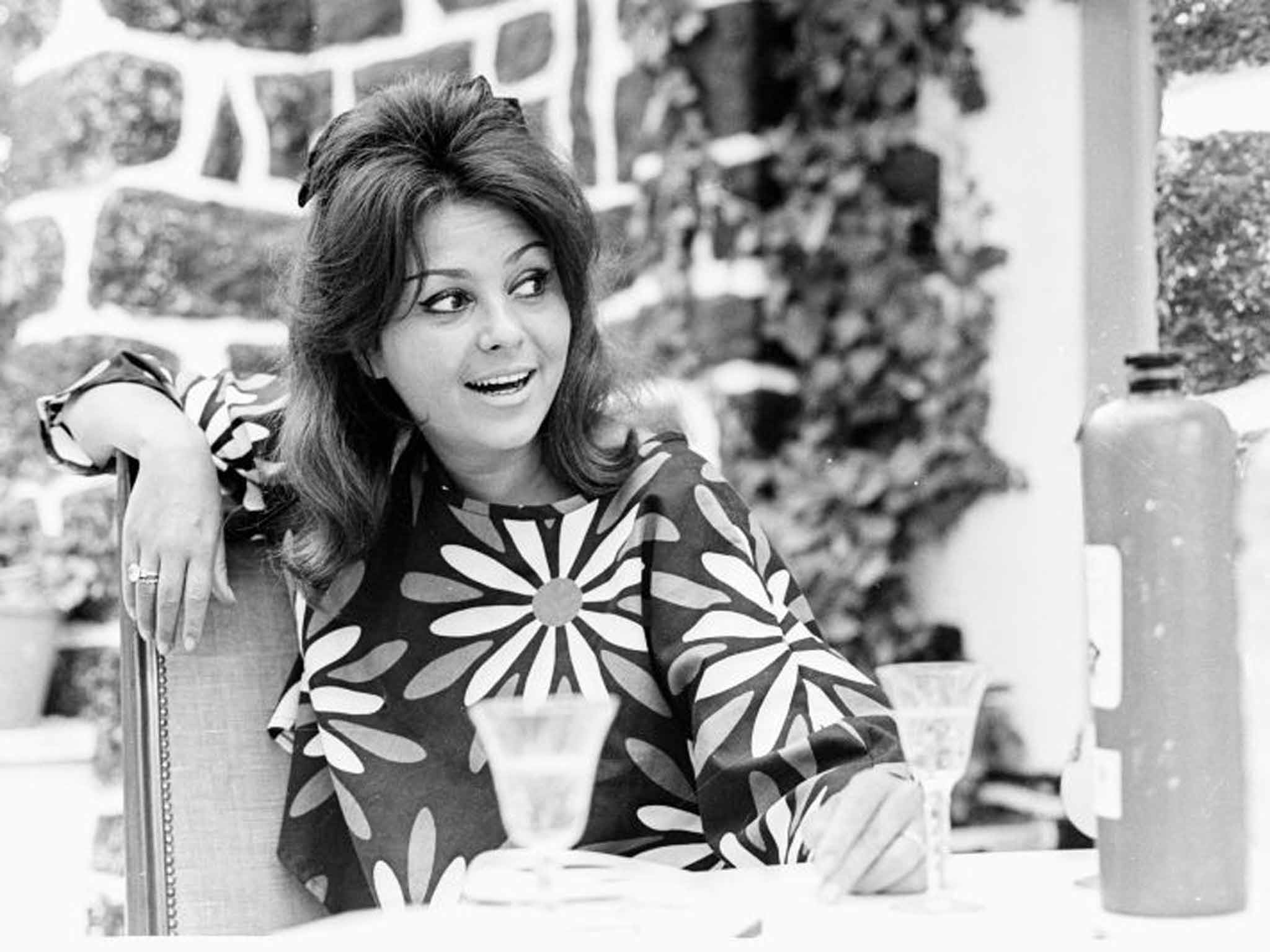Marujita Diaz: Singer and actress whose sentimental patriotism saw her promoted by Franco as a representative of the ideal Spain
She kept her social profile high by working Spain's booming chat show circuit and regularly featuring in the country's numerous gossip magazines

Outside Spain the name of Marujita Diaz may ring few bells. Yet in Franco's Spain of the 1950s and 1960s she was a leading film star, society belle and sex symbol – one of the very few of the latter to flourish in the bland, unchallenging popular culture which was all the dictatorship officially sanctioned – and easily as famous in her own country as, say, the Beatles.
Diaz was one of the country's greatest folcloricas – a term used (not always positively) to describe a group of female singers mostly born in the 1920s and 1930s who, partly thanks to the strict censorship under Franco, ruled the country's radio waves and cinema screens for nearly two decades. Their speciality was belting out mawkishly sentimental folk songs and equally strident, simplistic, patriotic ballads. While a few of their musical successors endure – Isabel Pantoja, currently in prison for money laundering, is probably the most famous – their heyday came half a century earlier.
The folcloricas' schmaltzy music, crammed with all-Spanish cliches of the bullfighting, bandits and flamenco variety, enjoyed huge commercial success, while the singers themselves were considered national treasures – not least because with not so much as a shred of political or social subversiveness about them, Franco's regime was only too happy, as El Mundo observed in its obituary of Diaz, to "elevate them to the status of representatives of the ideal Spain". Diaz was arguably more memorable, too, because of her raunchier type of sex appeal and softer, more expressive voice, not to mention one of her best-known party tricks, moving her eyes as if they were dancing.
In the best folclorica tradition Diaz, the daughter of a theatre worker in Seville's Triana district, was, it is said, able to sing before she could speak. She started acting when she was six and by the time she was 16 she had already starred in a film, La Cigarra (1948) [The Cicada], a musical melodrama.
She initially specialised in Andalusian folk music, and her first films were firmly rooted in that tradition, as titles like The Andalusian Dream (1951), The Folksong Fisherman (1954) and Adios Sevilla (1955) would suggest. But after marrying a South American businessman and actor, Espartaco Santoni, Diaz was influenced by him, broadening out to more generic popular folk music as well as theatre, particularly musical comedies.
This greater versatility netted Diaz some of her biggest hits, such as "Soldadito Español" (The Little Spanish Soldier) and "Banderita" (The Little Flag), and from a film memorable only for its slightly zany name, Carmen Boom (1971), the equally cheesy title track. She also had a solid run of minor success in classic dance genres like the tango, the Charleston, the zarzuela and the paso doble, the latter still much in demand at social celebrations in Spain. In all, she made 32 films and 40 records, whose main interest is probably how they expose the painfully narrow limits of mainstream popular art during Franco's dictatorship.
The end of Spain's international isolation by the mid-1960s saw the folcloricas become supplanted by worldwide genres like rock and roll. Diaz avoided a premature end to her career by building up her television gala show appearances, cranking out her best-loved hits. She also kept her social profile high by working Spain's booming chat show circuit and regularly featuring in the country's numerous gossip magazines, where she specialised in lengthy, hyped-up public spats with other slowly fading grandes dames of popular music.
She also maintained an image of seemingly infinite opulence, turning up to shows draped in fur coats and jewellery – referring to the latter with studied contempt and a toss of her carefully tousled hair as nothing more than "pura charcuteria fina": pure posh charcuterie.
But as time took its toll, and her looks faded, and suffered from ill-advised plastic surgery, Diaz did anything but age gracefully. Dropping increasingly outrageous statements on television to try to hold the public's attention, she made an equally clumsy attempt to surf the wave of new liberal cinema following Franco's death, as in Deseo Carnal (Carnal Desire, 1978), in which she played a mature Spanish woman whose libido leads her to fall unwittingly for her own son. "She did not," El Mundo sadly observed, "know how to grow old."
With her artistic heyday long gone, in her mid-seventies she enjoyed a brief but well-publicised and stormy relationship with Dinio Garcia, a Cuban porn actor, nightclub owner and singer four decades her junior. Having sated the gossip magazines with exclusives on why they split, Diaz, aged 82, adroitly leaked the idea of a possible rapprochement with Garcia. When the two duly buried the hatchet in 2013, it happened, predictably enough, live on a popular television chat show.
Even then, Diaz determinedly maintained another public pretence, that she had managed to beat cancer following a four-year battle. The real story had a grimmer finale.
Marujita Diaz, actress, singer and socialite: born Seville 27 April 1932; married firstly Espartaco Santoni (marriage dissolved), 1964 Antonio Gades (divorced 1965); died Madrid 23 June 2015.
Subscribe to Independent Premium to bookmark this article
Want to bookmark your favourite articles and stories to read or reference later? Start your Independent Premium subscription today.

Join our commenting forum
Join thought-provoking conversations, follow other Independent readers and see their replies